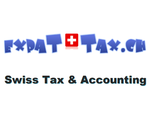Breaking the language barrier
This is evident even in Geneva, despite 50% of the working population being foreign. Finding specialist advice in your language is therefore a vital first step.
Reducing your tax bill
If you are newly employed, your salary is taxed at source in most cases - but there are solutions to reduce your tax bill at the end of the year. Probably the most effective way of doing this is through the ‘3rd Pillar’ programmes.
3rd Pillar A
‘3rd Pillar A’ is a Swiss savings plan that is considered tax deductible - up to an amount of CHF 6,786 (2016). Georgi explains that “not only do you take a decent sum out of your tax bill by paying into this plan; the interest on your deposits into 3rd Pillar is completely untaxed as well”. These benefits are available to you regardless of the canton you’re registered in.
Expats who aren’t sure how long they’ll be remaining in Switzerland needn’t worry either. Despite the 3rd Pillar technically being a pensions scheme, you can take out your savings before retirement if you are leaving the country. You can also do so if you are buying property or have certain medical expenses to cover.
3rd Pillar B
The interest on your ‘3rd Pillar B ‘savings are also tax-free, however the similarities with ‘A’ more or less end there. While ‘B’ provides the added benefits of allowing you to withdraw your money for any reason and contributing to life insurance, there are some drawbacks. Depending on the canton you are registered in, the maximum you can deduct from your tax bill is CHF 2,200 (Geneva), while in some cantons 3rd Pillar B is entirely non-deductible.
Which Pillar is best for expats?
“It depends if you’re just looking for a greater tax advantage and wealth accumulation or for life insurance as well”, says Georgi, “and you can actually opt for both”.
“You choose between a bank and an insurer with 3rd Pillar A, but with B you can only go with an insurer. For a short-term solution you can take the money out of a bank more easily, but if you are planning on staying long-term, an insurer is better as they provide guaranteed insurance, unlike the banks”.
To get a better idea on what will work best for you, it could be worth running a simulation at the beginning of the year to project your expected savings.
Further optimisation options
Further tax deductions for long-term expats can be gained through investing in property. If you do decide to buy, getting your mortgage through an insurance company might be beneficial as they offer lower interest rates.
Any work done on your property can also be deducted as long as you keep all the invoices.
For further specialist advice on Swiss tax, visit Uzunov Consulting .




